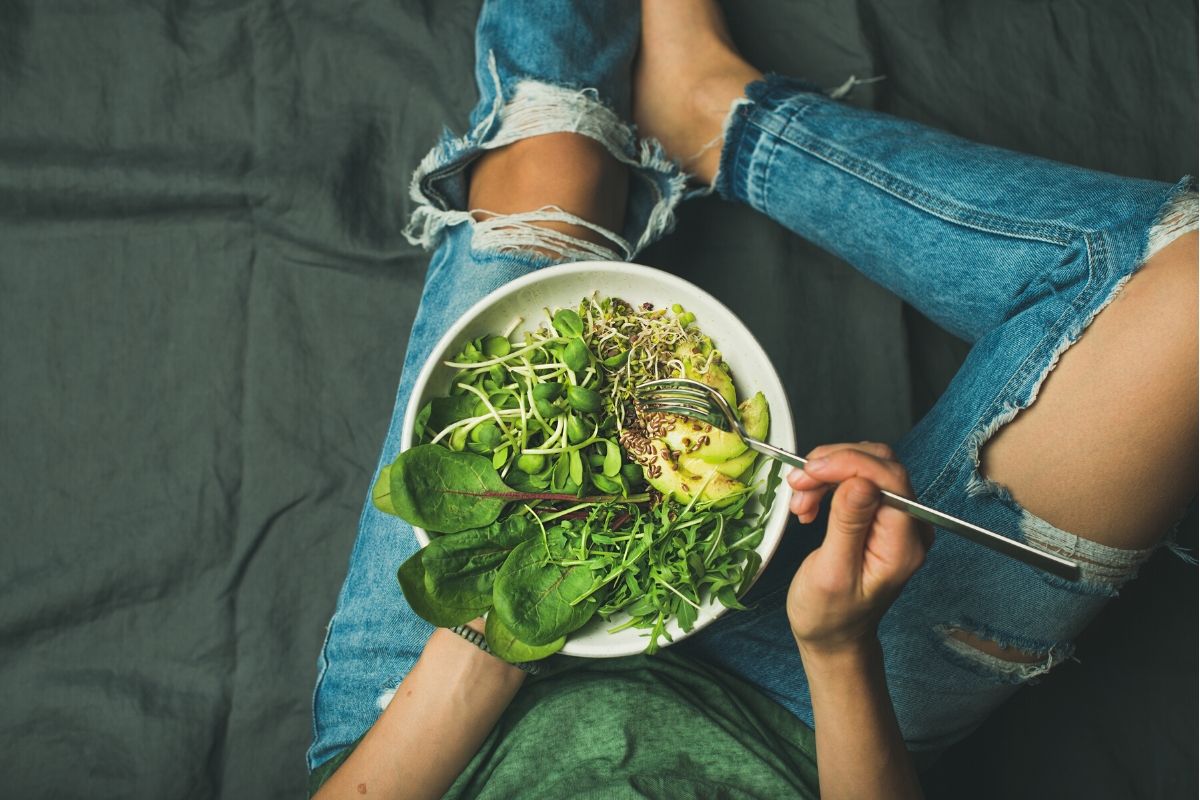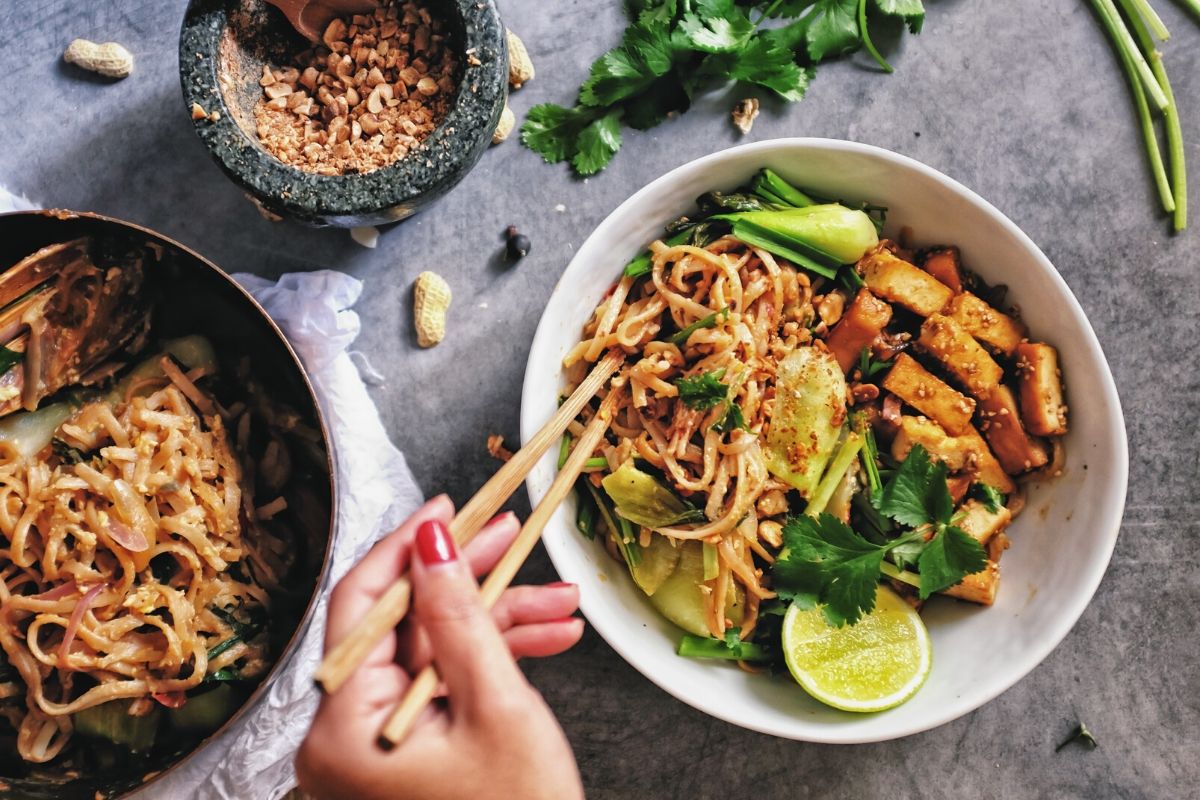The vegan choice

The vegan diet (or Vegan ) and vegetarian are not synonymous but have some substantial differences. Being vegan is a real lifestyle , a consumption choice that consists of excluding any type of product coming from animals both from one's own diet and, very often, also from clothing, accessories, furnishings, etc. It is therefore a complete refusal to exploit animals for reasons that may be ethical, environmental and / or personal.
Vegans vs vegetarians
In the vegetarian diet , products of animal origin are not completely banned as for vegans. A vegetarian quietly consumes eggs, dairy products and honey, eliminating meat and fish from the table, including processed products such as cured meats or surimi. A vegan, on the other hand, completely excludes the consumption of any food of animal origin (milk, dairy products, eggs and honey included).
Vegan diet: pros and cons
The vegan lifestyle, often married to seek greater well-being through an exclusively vegetable diet, if not properly studied by a nutrition professional can present some problems, as well as positive aspects.
Benefits
Among the positive aspects, we can list an adjuvant role to protect us from a series of ailments and diseases that often derive from the excessive consumption of meat and fats of animal origin:
- helps prevent cardiovascular disease,
- reduces the risk of developing obesity and diabetes,
- helps protect us from certain types of cancer.
Surely, this type of diet based on lots of fresh fruit and vegetables, legumes, seeds, sprouts, nuts and cereals (and not prepackaged vegan snacks!) Leads to a reduction in calorie consumption , helping to stay fit and not accumulate toxins in the body.
It is in fact known that consuming meat and fish from intensive farming also ingests a series of toxic substances such as dyes, preservatives, antibiotics, artificial feeds, anabolic substances used to rapidly develop the animal's mass.
But be careful because not all that glitters is gold. It is important to know and also consider the "cons" of the vegan diet.

Risks
Unfortunately, the vegan diet - here I am mainly referring to "do it yourself" diets - can lead to some nutritional gaps and other problems and annoyances. A diet low in nutrients and repetitive in the choice of foods can lead to:
- exhaustion,
- nausea,
- shortcomings,
- weakness,
- anemia,
- intestinal imbalances.
Many people then go on a vegan diet thinking about losing weight, but it is not immediate. Weight loss is closely linked to the amount of calories and the daily consumption that a person maintains. If a vegan overdoes their fat intake, they will gain weight.
Furthermore, vegan nutrition is not recommended for a large portion of the population: pregnant women, small children, elderly people or celiacs should follow a varied and balanced diet, consuming at least some foods of animal origin.
Vegan diet: how to supplement and eat
Since the human being is naturally omnivorous , some of the nutrients present in meat and animal derivatives are for us more easily assimilated and "complete" from a nutritional point of view. It is therefore difficult to replace them by feeding exclusively on vegetables and legumes! Vegetable Protein and vitamins can replace nutrients of animal origin for a short time, also offering benefits in terms of food variation. However, the speech is valid for a limited period of time. If continued, you risk suffering from deficiencies in vitamins, iron and essential amino acids, with the risk of developing anemia . So let's see how to avoid these deficits with some dietary precautions.
- Iron . To compensate for iron deficiency, iron-rich foods such as sesame seeds, dark chocolate, beet juice, beans, lentils, soy, chickpeas and legumes can be introduced into the diet. To help the absorption of iron it is also recommended to combine it with citrus fruits, strawberries or lemon juice, for example by squeezing it well on raw or cooked vegetables.
- Vitamin B12 and D. It can be a bit more complicated to fill the need for several vitamins, such as vitamin B12, vitamin D, but also minerals such as calcium and zinc. A vegan can remedy this by including fortified plant foods such as soy milk enriched with vitamin D and vitamin B12, or choose to take special food supplements.
- Protein and amino acids. To give the body all the essential amino acids it needs, just look at our most enlightened culinary tradition, the one that combines cereals and legumes in the same dish, such as peas and rice or pasta and beans. Per better support, even in this case, vegan protein and amino acid supplements can be used.
Conclusions
My idea about vegan, vegetarian, but also ketogenic diets or any type of restrictive diet reflects the importance of maintaining a truly healthy and balanced lifestyle . In life it is essential to have a half measure in every choice. Extremes are always harmful.
To stay healthy it is important to look at the balance of nutrients and calories we consume. A right amount of fiber and carbohydrates, the right amount of animal Protein, alternated with vegetable Protein, an abundance of fresh fruit and vegetables. By embracing the "middle ground" mentality, I believe that it is possible to have better control of both the state of health and body weight.
What do you think about the vegan diet? Let us know in the comments.
References
- Position of the Academy of Nutrition and Dietetics: Vegetarian Diets. J Acad Nutr Diet. 2016 Dec;116(12):1970-1980
- Dieta vegetariana: pro e contro, AIRC, Agenzia Zoe, 25/02/13, https://www.airc.it/cancro/prevenzione-tumore/alimentazione/dieta-vegetariana-pro-e-contro
